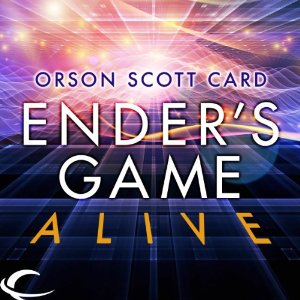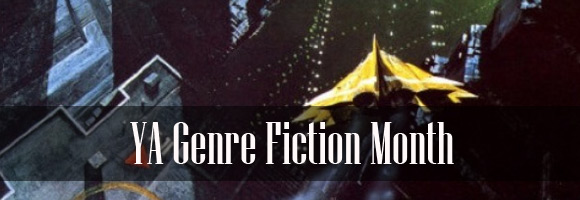Ender’s Game Film Review
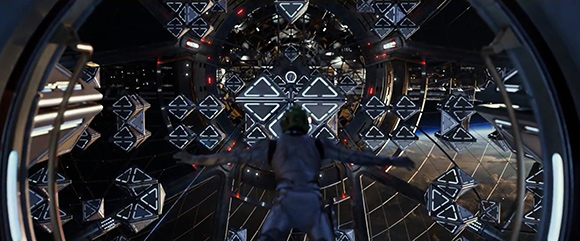
There’s a lot to love and little to hate in Gavin Hood’s adaptation of Orson Scott Card’s Ender’s Game. I’ll keep this short because there’s not much to say except that this is an entertaining and worthwhile movie. Most people on WWEnd have read the novel, if our new list is any indication, so a rehash of the plot is probably unnecessary. It’s a classic for a reason, and far more memorable than its many sequels.
Hood’s most recent directorial work was 2009’s X-Men Origins: Wolverine. This may not inspire much hope, but even apart from his recent disclaimers about the X-Men film, Hood proves himself many times over with Ender’s Game, for which he also wrote the screenplay. The film retains most of the novel’s central plot while dropping most of the earthbound intrigue of international politics exacerbated by Ender’s siblings. In fact, his brother Peter only appears once, and briefly, enough to ensure that the audience understands that he represents Ender’s dark side and capacity for cruelty.
Asa Butterfield (Hugo) is great as Ender, managing a strong screen presence despite sharing it with Harrison Ford and Ben Kingsley. His sister Valentine is played by Abigail Breslin (Zombieland, Little Miss Sunshine), and she gets plenty of screen time as the ideal person Ender wishes he could be. Hailee Steinfeld (True Grit) makes a great Petra, and one wishes she could have had more time on screen. The other child actors are also surprisingly good, considering how many of them there are.
The special effects often went beyond serviceable to hauntingly beautiful. What we saw in the trailer wasn’t much beyond the final simulations, which necessarily have an artificial feel to them. The battle room was especially well-conceived, in a way that makes far more sense than I was ever able to imagine while reading the novel. It’s a great thrill to see the battle room games realized so well on screen. The mind game sequences necessarily feel like a video game, but they are inventively stylized and would probably actually make for a great game.
The only part of the film that didn’t quite work for me was the ending, which was slightly rushed and which collapsed a few plot elements. I’m unsure if this is a real problem with the pacing of the film, or if I’m just insisting on having things the way the novel told them, but it didn’t feel entirely right to me. In any case, all of the major themes remain intact throughout.
Ender’s Game is still a timely story about the cruelties of war that often flow from our insistence on war’s necessity–the cruelties towards our enemies as well as the cruelties visited upon our own.
Ender’s Game Alive: The Full Cast Audioplay Giveaway!
 And now for something completely different… By now you’ve probably gotten used to seeing free book giveaways on WWEnd – heck, we just did one earlier today! Well, this time we’re helping Audible give away 5 copies of the brand-spanking-new Ender’s Game Alive: The Full Cast Audioplay. This is not an audio book. This is a full on play with a whole cast! Check out the embedded sample below to get a taste, I’m sure you’ll like it.
And now for something completely different… By now you’ve probably gotten used to seeing free book giveaways on WWEnd – heck, we just did one earlier today! Well, this time we’re helping Audible give away 5 copies of the brand-spanking-new Ender’s Game Alive: The Full Cast Audioplay. This is not an audio book. This is a full on play with a whole cast! Check out the embedded sample below to get a taste, I’m sure you’ll like it.
Just like our regular contests, all you have to do is re-tweet this tweet or leave a comment here in the blog for your chance to win. Do both and double your chances! Your name will go into the hat and we’ll draw our 5 random winners next Friday. Here are the details from Audible:
ENDER’S GAME ALIVE: THE FULL CAST AUDIOPLAY
Audible Studios is delighted to introduce Orson Scott Card’s groundbreaking new audioplay, Ender’s Game Alive. One of the most ambitious audio productions ever, Ender’s Game Alive is a sweeping, full cast dramatization in the vein of an old-school radio play that features 40 actors reading more than 100 roles, complete with sound effects and an original musical score: a truly immersive listening experience.
The script is written and the production is endorsed by the Ender’s Game author himself, Orson Scott Card. “I think it’s the best version of Ender’s Game that’s been created yet,” he says.
The Ender’s Game movie hits theaters 11/1, starring Harrison Ford, Ben Kingsley, Abigail Breslin, Hailee Steinfeld, and Asa Butterfield.
Ender’s Game Alive puts you into Battle School with young Andrew “Ender” Wiggin, as he trains to become the general who will lead Earth against the Formics, the alien “buggers”. Removed from his family at the age of six, Ender must prove his strength and his leadership, even as he fights his own doubts. The stakes are nothing less than the fate of humankind.
Ender’s Game Alive is performed by Kirby Heyborne, Stefan Rudnicki, Theodore Bikel, Scott Brick, Samantha Eggar, Harlan Ellison, Susan Hanfield, Roxanne Hernandez, Janis Ian, Rex Linn, Richard McGonagle, Jim Meskimen, Emily Rankin, John Rubinstein, Christian Rummel, and a full cast.
Directed by Gabrielle de Cuir
Original Score by John Rubinstein
Valentine’s Theme by Janis Ian
Additional music and arrangements by Mark Mitchell
Find more information about Ender’s Game Alive: here.
I love this kind of old school radio play presentation – especially if it’s a favorite story! All that’s missing is the hum of radio tubes and a bit of atmospheric static. Well, you can’t have everything, I guess. If you’re like me and can’t wait for the movie this will help you get into an Ender frame of mind for sure. Best of luck in the contest!
Edit: We heard from one of the directors of Ender’s Game Alive, Gabrielle de Cuir, and she wanted to point out that the production house, Skyboat Media, has a wealth of behind the scenes info on their website detailing how it all came together. She also hinted that there could be more to come if this one performs like it should. Thanks, Gabrielle, for the info and good luck to your team!
Ender’s Game – First Trailer
Them’s some nice-looking special effects. Ender’s Game (also: Amazon, Kindle, Audible) is one of our most popular novels. Let’s hope the film tries to live up to it.
YA Genre Fiction Month: Ender’s Game
“Sometimes lies were more dependable than the truth.”
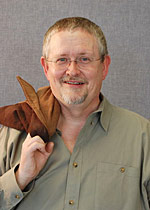 Orson Scott Card’s first story about Andrew “Ender” Wiggin has remained one of the most popular science fiction stories for young audiences ever since its publication as a novel in 1985. Considered to be one of the best Young Adult science fiction novels, Ender’s Game is far better even than Card’s own sequels to the novel. The story is simply told—a bragging point for Card in his introduction to the 1991 revised edition, against those who “play the game of literary criticism”—and its protagonist begins the story at the age of six, making the novel doubly appealing to young readers. It also presents a detailed and believable space-dwelling society, describing simply but thoroughly how life outside our planet might look.
Orson Scott Card’s first story about Andrew “Ender” Wiggin has remained one of the most popular science fiction stories for young audiences ever since its publication as a novel in 1985. Considered to be one of the best Young Adult science fiction novels, Ender’s Game is far better even than Card’s own sequels to the novel. The story is simply told—a bragging point for Card in his introduction to the 1991 revised edition, against those who “play the game of literary criticism”—and its protagonist begins the story at the age of six, making the novel doubly appealing to young readers. It also presents a detailed and believable space-dwelling society, describing simply but thoroughly how life outside our planet might look.
The story, for those who don’t know it, revolves around the ongoing war with the only known sentient alien species, termed the “buggers” because of their insectoid appearance. After the buggers’ second invasion almost wiped out Earth’s military forces, with the humans just barely pulling a victory, the government begins genetically manipulating children in the hopes of creating a military leader strong and intelligent enough to defeat the buggers once and for all. Ender is the third child of his family to be grown this way, leaving him with siblings who are exceptional, but flawed for the military’s purposes. Only Ender has the mixture of strength, genius, and compassion needed to make their plans work, so he is chosen as a mere child to begin training at the extra-terrestrial Battle School. It is there that his teachers make him into a weapon to save the Earth.
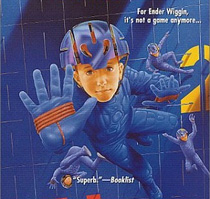 Of particular interest are Card’s predictions of future technologies that are surprisingly similar to what we see around us today. The most obvious is the anonymous method of written communication over “the nets.” Two characters in particular make careers for themselves through pseudonymous writing on the public and electronic discussion groups. The only part of this prediction that seems unrealistic today is the belief that online discussions would ever be taken seriously by politicians. The other prediction is in the immersive electronic Game played by the Battle School children in their free time. Using an avatar to travel around a three-dimensional and fantastic world, solving puzzles and fighting battles in the meanwhile, their Game might as well be a version of World of Warcraft.
Of particular interest are Card’s predictions of future technologies that are surprisingly similar to what we see around us today. The most obvious is the anonymous method of written communication over “the nets.” Two characters in particular make careers for themselves through pseudonymous writing on the public and electronic discussion groups. The only part of this prediction that seems unrealistic today is the belief that online discussions would ever be taken seriously by politicians. The other prediction is in the immersive electronic Game played by the Battle School children in their free time. Using an avatar to travel around a three-dimensional and fantastic world, solving puzzles and fighting battles in the meanwhile, their Game might as well be a version of World of Warcraft.
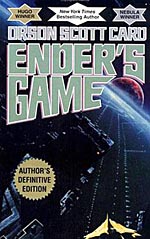 Ender’s Game is not beyond criticism. The novel’s plot feeds the natural but immature narcissism of young people by presenting a world that revolves around a brilliant young person rather than insisting on the need for young adults to assimilate themselves to the society which is much older and stronger than they are. (To be fair, this is a common problem in Young Adult novels, possibly the most common.) Even worse, it encourages a deep distrust of adults as cynical overlords who use children—the bright and perfect children—for horrible purposes. As Ender thinks to himself at one point, “The most important message was this: the adults are the enemy, not the other armies. They do not tell us the truth.” The real world provides enough tension between generations without novelists stirring up further hatred and distrust. Somewhat less annoying is Card’s blatant distaste for literary criticism and “encoded fiction,” which unfortunately serves to make the novel unmemorable aside from its plot and emotional content, as there is no reason ever to go back and enjoy any beautifully-written passages. There’s a fine line between wanting to write a straightforward story and being lazy and unimaginative.
Ender’s Game is not beyond criticism. The novel’s plot feeds the natural but immature narcissism of young people by presenting a world that revolves around a brilliant young person rather than insisting on the need for young adults to assimilate themselves to the society which is much older and stronger than they are. (To be fair, this is a common problem in Young Adult novels, possibly the most common.) Even worse, it encourages a deep distrust of adults as cynical overlords who use children—the bright and perfect children—for horrible purposes. As Ender thinks to himself at one point, “The most important message was this: the adults are the enemy, not the other armies. They do not tell us the truth.” The real world provides enough tension between generations without novelists stirring up further hatred and distrust. Somewhat less annoying is Card’s blatant distaste for literary criticism and “encoded fiction,” which unfortunately serves to make the novel unmemorable aside from its plot and emotional content, as there is no reason ever to go back and enjoy any beautifully-written passages. There’s a fine line between wanting to write a straightforward story and being lazy and unimaginative.
But despite my reservations, Ender’s Game is still one of the most memorable science fiction novels of the last few decades, and its flaws have not prevented its success. It is certainly the best of Card’s novels that I’ve read, and it was clever enough that I didn’t even suspect the twist ending until it hit me. A quick read that will never leave you bored, and might even make you think, Ender’s Game will undoubtedly remain a Young Adult genre classic for years to come.
Ender’s Sequel (for real, this time)
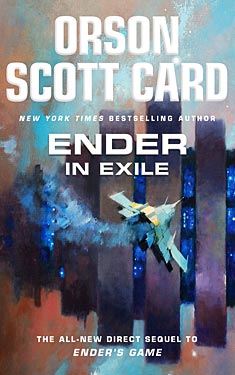 Yeah, Orson Scott Card has written plenty of follow-up books to his 1985 classic, Ender’s Game. None of them, however, satisfied the reader’s question about what happened next. The events of Speaker for the Dead and Xenocide happen thousands of years later, Ender’s Shadow was a retelling of the original novel, and Shadow of the Hegemon jumps back to the 22nd, century, but nowhere near the events of the Formics war. Then there were all those prequel short stories, and then….well, you get the point.
Yeah, Orson Scott Card has written plenty of follow-up books to his 1985 classic, Ender’s Game. None of them, however, satisfied the reader’s question about what happened next. The events of Speaker for the Dead and Xenocide happen thousands of years later, Ender’s Shadow was a retelling of the original novel, and Shadow of the Hegemon jumps back to the 22nd, century, but nowhere near the events of the Formics war. Then there were all those prequel short stories, and then….well, you get the point.
Orson is a tease.
Well, it seems he has finally taken pity on us. Finally, Mr. Card aims to satisfy with a direct sequel to Ender’s Game, depicting Ender as a teenager, unable to return to Earth. This novel promises to fill in the gaps between Enders Game and Speaker for the Dead, and presumably results in Ender deciding to board the interstellar ship that push him forward in time. Look for this book to get a nomination or two. You can find a press release here.



















 Full Details
Full Details
